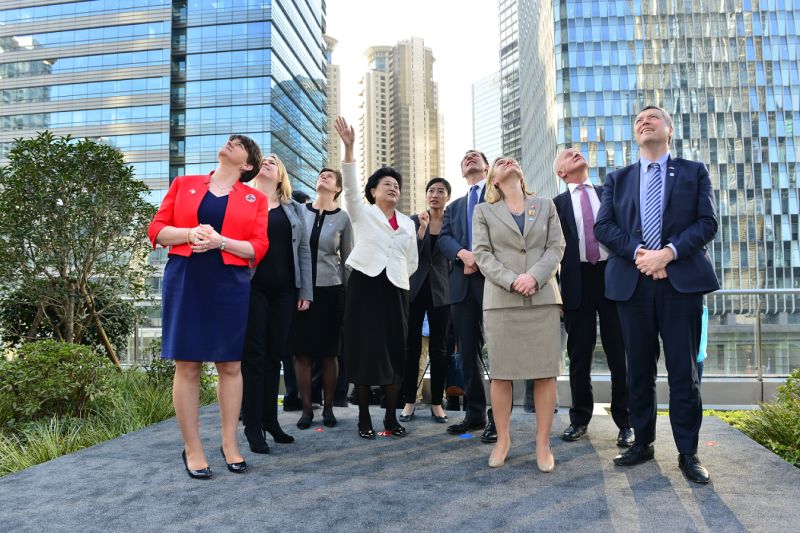On 6th December I attended the 4th UK-China People to People Dialogue which is chaired by Vice Premier Liu Yandong and Jeremy Hunt. It covers a range of issues including science and innovation, education, health and culture. John Loughhead, Chief Scientific Advisor at the Department for Business, Energy and Industrial Strategy, travelled to Shanghai to lead the science and innovation strand. “Creativity and Innovation” was specific theme of this year’s dialogue.
Given China’s focus on innovation led economic growth in their 13th Five Year Plan released this year, it was perhaps no surprise that Madame Liu spoke extensively about the importance of collaboration in this area. She spoke about the positive impact from the UK’s role as Country of Honour this year at Pujiang, China’s national innovation forum, where we delivered a number of high profile events and created many new partnerships. She highlighted the Research and Innovation Bridges Newton programme, as another highly successful initiative. The joint programme between Innovate UK, Research Councils and China’s Ministry of Science and Technology will see businesses and researchers working together to develop tech solutions for an aging population, agricultural production, urbanisation and energy sustainability. It was great to see the work of my team and delivery partners receive such a high level of recognition. We hope to announce the successful projects soon.
A key outcome from the dialogue was formalising the agreement to create the first ever UK-China Science and Innovation Strategy, through the signing of an Memorandum of Understanding by John Loughhead and Vice Minister Huang Wei. In addition, both John and Vice Minister Wei chaired the first Strategy Roundtable, attended by over 70 people, where initial proposals for the Strategy were presented by the Chinese Academy for Science and Technology Development (CASTED). Alongside this, representatives from academia, universities and businesses presented their current successes and provided ideas for new and innovative models. The UK will convene an expert group and respond to the detailed proposals.
However, what was clear in the roundtable was the genuine desire for both sides to work together. China demonstrated a strong wish to have a long-term partnership with the UK, doing all it can to tackle barriers to joint working. Currently Germany is the only other country to have such a strategy with China. It was agreed that the strategy should be based on “win-win” cooperation and mutual benefit, looking beyond the traditional Government supported mechanisms of R&D calls, into a wider portfolio of activity.
But what was most striking to me was the convergence between the UK and China’s approaches to science and innovation. New language used by China at the roundtable, focusing on the role of both countries working together as world leaders to tackle global challenges and promote open global innovation, mirrors the UK’s approach. The UK, in placing science and innovation at the heart of its industrial strategy, has increased alignment to China’s innovation driven development strategy, including supporting regional growth.
Based on the extensive opportunities, I look forward to working on the new strategy. We are aiming to move quickly. Please share your thoughts and ideas about new ways of working than can maximise benefit for both countries.

